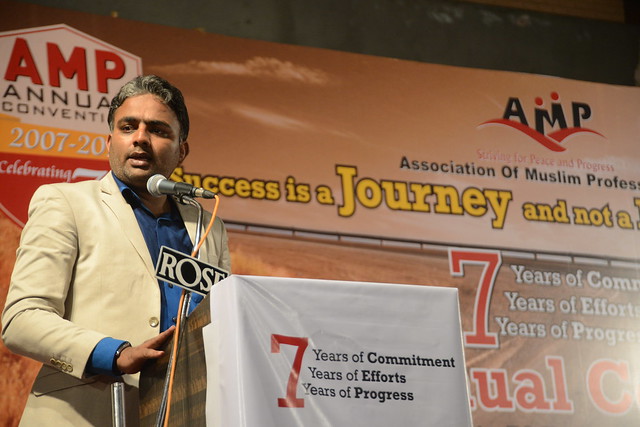The objective of Zakat is to transform the beneficiary of today into benefactors of tomorrow.
By Aamir Edresy
The importance of Zakat can be very well understood with the number of verses commanding the believers to ‘establish the prayers and give zakat’ appearing in the Holy Qur’an. Almighty Allah at many places differentiated between believers and non-believers by whether or not they paid their Zakat.
Zakat is a universal system of eradicating perverting, helping people and checking the wealth gap between rich and poor. There is no other religion in this world which has such system in place and made it compulsory for its followers to give a certain percentage of their wealth to poor.
If we look at ground realities, we will find that the major portion of Zakat by Indian Muslim Community is distributed in pieces. The huge money of Zakat by Indian Muslims have never been used as a tool for Poverty Alleviation. It has never been used as the tool to transform beneficiary of today into benefactors of tomorrow.
There has been an utter failure in realizing the true potential of Zakat with respect to the Muslim community in India. The fundamental problem is the way the Zakat is collected and spent without any collective strategies. The system is used in an ineffective way at a personal level where the needs of whole community is not kept in mind and the spirit of system of Zakat vanishes which shows no result on the ground.
The only solution to this grave problem seems to be the collective efforts (Ijtemaiyat) in collecting and distributing the Zakat.
Before going into and introducing the idea of ‘Ijtimayiat’, let us just run through some numbers which will definitely amaze you …
18.75 crore: Population of Indian Muslims in 2015 (15% of 125 crore)
3.75 crore: Number of families (Considering five members per family)
1.5 crore: Sahibe Nisab (assuming only 40% of 3.75 crore)
2 lakh: Assuming only bare minimum amount of Nisab (77gm gold value)
Rs 5,000: Zakat per family on the basis of 2.5%
Rs 7,500 crore:Total Zakat (from 1.5 crore families, 5000 x15000000)
Aren’t the numbers startling? For sure they are.
This is the calculation done on bare minimum criteria we have considered. Experts say that this amount is much more and goes to more than Rs 40,000 crore every year.
Zakat is the instrument of eradicating poverty, which encompasses values beyond just matters of money. The compulsion to give Zakat and precondition that the giver does not indicate any feeling of charity towards the poor, rather it is a ‘Huq’ of poor which is in the possession of ‘Sahibe Nisab’ and must be distributed amongst poor. This aspect of Islam will not be found in any other existing system on earth.
Now, where is Zakat money which of such exorbitant amount is going? Certainly nobody will be able to track the collection or disbursement of Zakat in India without committing gross miscalculations and making erroneous approximations. The reason is – the system of collection and disbursement have remained orthodox and far from the teachings of Islam. Zakat in itself is a system of not only calculation of the amount to be given away but also the way it should be collected, distributed and managed.
The missing factor which is emphasized time and again is the concept of collective collection and utilization of Zakat. The need of Ijtimayi collection has been talked about a lot but there has been very little initiative. But better late than never, we must start at every possible level to pool together and utilize Zakat collectively.
The system cannot be changed overnight, that too in a vast country like India, but small initiatives should be taken in smaller circles to start with the true concept of Zakat. It may not be possible to bring together hundreds and thousands of people to realize these astonishing numbers but we must come closer in small groups of tens and hundreds to begin with.
The system of Zakat can be used to help the community in numerous ways. With the collective system of Zakat, we can spend the money based on strategic long term goals rather than utilizing it in bits and pieces at rudimentary level. The amount of money involved is enormous and it can work for us as a corpus for several daunting community needs.
It must be kept in mind that Zakat is a divine concept with a lot of apparent and hidden benefits, and the most prominent of them is to narrow down the economic disparities and eventually it strives to make the Zakat Taker a Zakat Giver.
(Aamir Edresy is a social activists, youth leader and president of Association of Muslim Professionals. He can be reached at [email protected])


